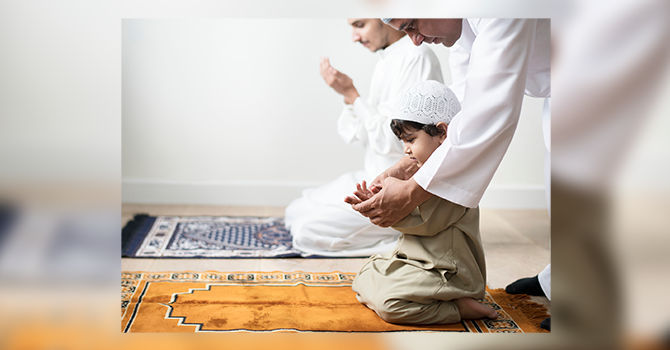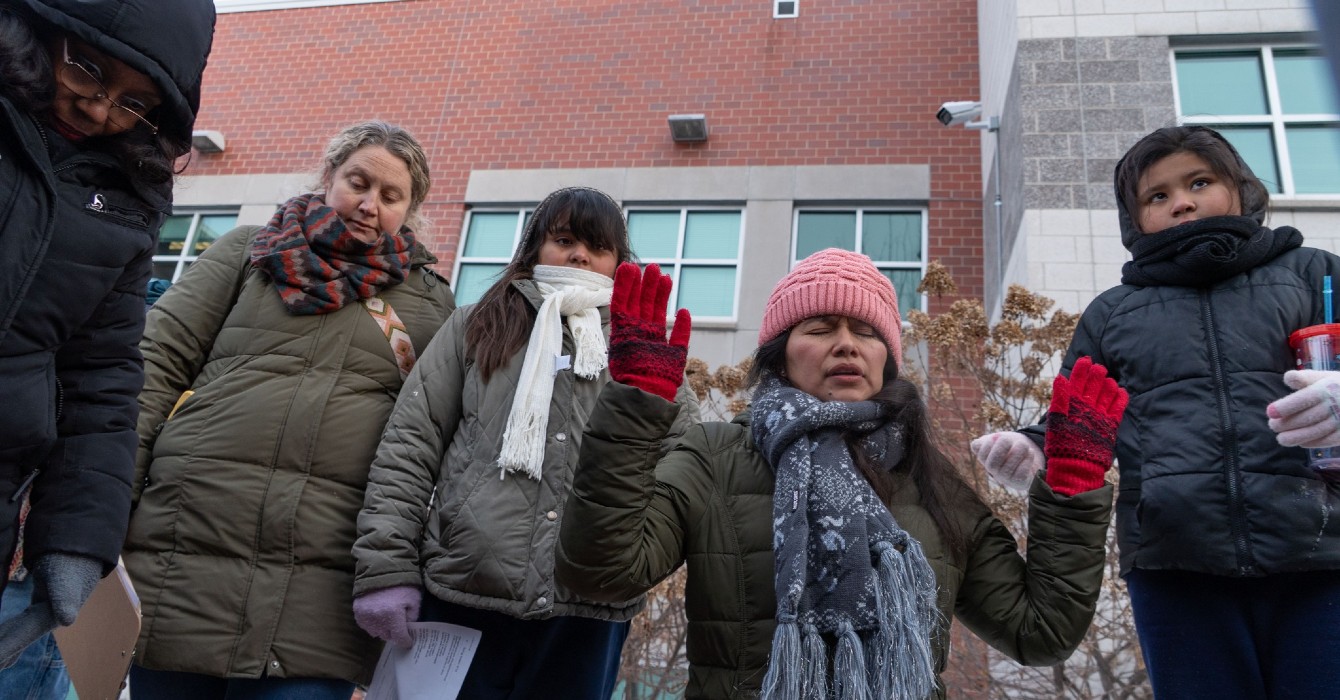Americans don’t always agree about what religious freedom requires. Some demand religious exemptions from employment protections for LGBTQ workers, for example, while others insist that religious liberty does not include a right to such exemptions.
The application of COVID-19 restrictions to houses of worship has prompted fierce debates, as have the presence of religious monuments on public property and bans on the use of government grant funds for religious items and activities.
At least one urgent religious-freedom challenge facing our country, however, has the potential to unite people on different sides of these debates -- the need to protect religious minorities from hostility and attacks. Today, many Americans cannot practice their faith without fear for their physical safety.
Any discussion of anti-religious incidents -- vandalism or assault and harassment due to an individual’s or a community’s faith -- must first acknowledge that these incidents are chronically underreported. Nevertheless, the statistics and stories we do have are staggering.
The Anti-Defamation League reports, for example, that anti-Semitic incidents in the United States hit an all-time high in 2019. On average, the organization found, there were as many as six anti-Semitic incidents in the United States each day.
From early December 2019 to early January 2020, 43 attacks on Jewish people were reported in New York State alone, including the stabbing of five victims during a Hanukkah celebration at a rabbi’s home. In April 2019, a gunman entered a synagogue in Poway, California, during Passover services and began firing, killing one and injuring three.
The Federal Bureau of Investigation’s hate crimes data provides another window on this crisis. On an annual basis, the FBI collects data on violent and intimidating acts against individuals that are motivated by animus based on a person’s actual or perceived race, religion, ethnicity, gender, sexual orientation, gender identity or disability.
Hate crimes data from the FBI for 2018, which is the most recent such dataset available, reveals that 57.8% of the year’s religion-based hate crimes were anti-Jewish. That figure includes the October 2018 Tree of Life synagogue massacre in Pittsburgh, in which 11 Jews were killed by an anti-Semitic shooter. The Pittsburgh attack is believed to be the deadliest on American Jews in U.S. history.
The FBI data also reveals that religion-based crimes were the second-largest category of hate crimes in 2018, after race-based crimes. Anti-Sikh hate crimes tripled from 2017 to 2018. Indeed, the Sikh Coalition estimated in March 2018 that Sikhs in the U.S. were experiencing an average of one hate crime per week.
The wounds of horrific anti-Sikh attacks linger, including the 2012 attack on a gurdwara in Oak Creek, Wisconsin, where a gunman killed six congregants and injured three.
Such threats continue. In April 2020, for example, a man harassed a Sikh store owner, Lakhwant Singh, damaging property in the Lakewood, Colorado, business and shouting at Singh and his wife to “go back to your country.”
When Singh followed the harasser outside to take a photo of his license plate, the man ran over Singh with his car, causing injuries that required months of hospitalization and rehab.
American Muslims have also been repeatedly targeted. The think tank New America has published a disturbing study focusing on a range of anti-Muslim activities, including attacks on mosques and Islamic centers, statements by local government officials denouncing Islam, and efforts by state lawmakers to enact anti-Muslim legislation.
The study found that there were 763 unique incidents of such activities from 2012 to 2018, with activities increasing dramatically since late 2015. Some officeholders -- in a bid to deny First Amendment protections to American Muslims -- have even argued that Islam is not a religion.
Like other anti-religious incidents, anti-Muslim activities have not been stopped by the coronavirus. In May 2020, for example, a drive-by shooter fired into an Indianapolis mosque on Eid al-Fitr, a holiday celebrating the end of Ramadan.
Other communities have been targeted as well, including certain communities defined not only by their race or ethnicity but also by their religious identities. In 2015, a white supremacist murdered nine members of Mother Emanuel African Methodist Episcopal Church in Charleston, South Carolina, as they concluded their Wednesday night Bible study.
In October 2018, a gunman tried to enter a historically Black church in Jeffersontown, Kentucky, shortly after a noon Bible study had concluded. The gunman was thwarted only because the doors of the church were locked, a precaution taken in the wake of the Mother Emanuel attack.
After failing to gain entry to the church, the Kentucky shooter went to a nearby grocery store, where he gunned down two Black shoppers, reportedly telling at least one witness that he was sparing white individuals because of their skin color.
These threats require us to act. In the words of the Rev. Dr. Martin Luther King: “Injustice anywhere is a threat to justice everywhere. We are caught in an inescapable network of mutuality, tied in a single garment of destiny.” If we are truly committed to the principle of religious liberty, we will see these statistics and stories as grave threats to that cause, no matter our faith or beliefs.
Every religion is a minority faith somewhere. While Christians are a majority and Muslims are a minority in the United States, for example, that equation is flipped in other countries. And when we protect religious minorities in the United States, we strengthen our government’s hand in calling on other countries to protect religious minorities in their own lands.
President Barack Obama made this point at a mosque in Baltimore, Maryland, in February 2016 in remarks to the Islamic Society of Baltimore: “We have to be consistent in condemning hateful rhetoric and violence against everyone.”
Of course, Obama wasn’t the first president to visit a mosque or address these issues. Just six days after the 9/11 attacks, President George W. Bush stood alongside Muslim leaders at a mosque and said: “They love America just as much as I do.”
And in his 1790 letter to Touro Synagogue, President George Washington declared: “For happily the Government of the United States, which gives to bigotry no sanction, to persecution no assistance, requires only that they who live under its protection should demean themselves as good citizens.”
Moving forward, will the United States truly be a nation that gives “to bigotry no sanction, to persecution no assistance”? That’s up to us. Every American can take steps now to help reach that goal.
As a start, here are two:
First, we can hold candidates and governmental leaders accountable for any dehumanizing language, violent imagery or fearmongering on factors like religion. When people on the edge hear such language, they may harm others.
Of course, more is required than simply a rejection of bigotry and a refusal to recklessly endanger human life. Public servants must also affirm -- both in word and in deed -- that there are no second-class religions under the Constitution and that everyone should be able to practice their faith in peace.
Second, we can register support for needed legislation. Americans can call on Congress to pass the Khalid Jabara and Heather Heyer NO HATE Act, for example. This act is named for two murder victims whose deaths were not included in hate crime statistics.
Khalid Jabara was shot by a next-door neighbor who was known to law enforcement for his targeting of Jabara’s family members because they are Arab American.
Heather Heyer was killed when a self-described neo-Nazi plowed his car into a crowd that was protesting against white supremacy in Charlottesville, Virginia, in 2017. The killer targeted the crowd because of its racial diversity, mortally wounding Heyer. The NO HATE Act will improve reporting of hate crimes and encourage law enforcement prevention, training and education in this area.
As our nation reckons with racism, it’s time to face other injustices too, such as hostility and attacks on religious minorities. Any serious effort to promote religious freedom will make significant investments in righting these wrongs and protecting the ability of all people to practice their faith without fear.












